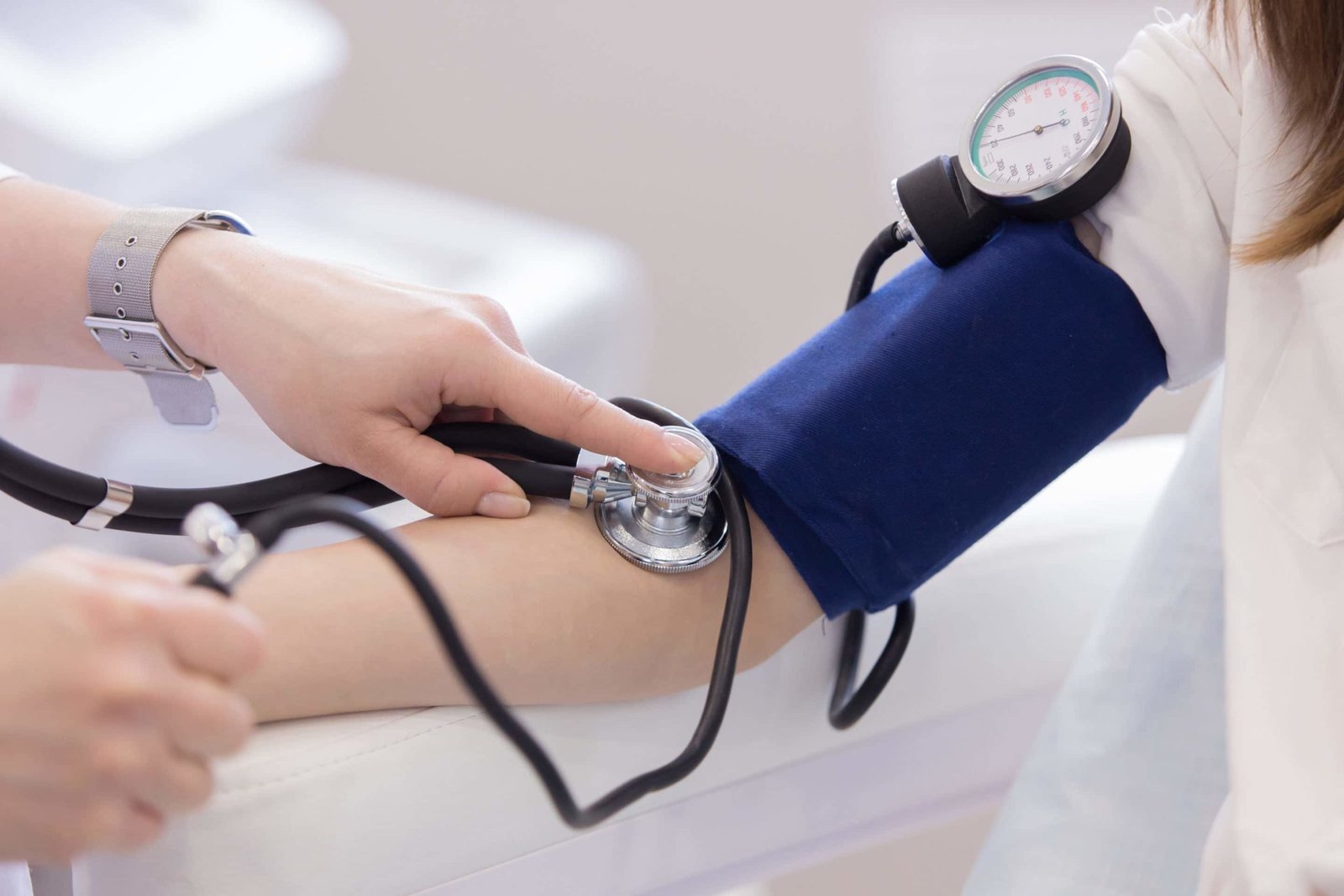Blood Pressure

What is Blood Pressure ?
Symptoms
High Blood Pressure (Hypertension) Symptoms
Often asymptomatic (silent killer)
Headache
Dizziness
Blurred vision
Shortness of breath
Nosebleeds
Chest pain (in severe cases)
Low Blood Pressure (Hypotension) Symptoms
Dizziness or lightheadedness
Fainting
Blurred or narrowing vision
Nausea
Fatigue
Lack of concentration
Procedure or Treatment
We provide comprehensive BP management:
Diagnosis:
Blood pressure measurement using a sphygmomanometer or digital BP machine.
Repeated readings at different times to confirm diagnosis.
ECG, blood tests, or kidney function tests if needed to check related complications.
Treatment for High Blood Pressure:
Lifestyle Modifications:
Low-salt, balanced diet
Regular exercise
Weight management
Limiting alcohol, quitting smoking
Stress management and yoga
Medications:
Diuretics
Beta-blockers
ACE inhibitors
Calcium channel blockers
As prescribed by the doctor based on individual conditions.
Treatment for Low Blood Pressure:
Increasing salt intake (under doctor’s guidance)
Drinking more fluids
Wearing compression stockings
Medications in severe cases to raise BP
Treating underlying causes such as dehydration, infections, or hormonal issues.
Prevention
Maintain a healthy weight.
Eat a balanced diet rich in fruits, vegetables, and whole grains.
Limit salt and processed foods.
Exercise regularly (walking, yoga, or aerobic activity).
Avoid smoking and excessive alcohol consumption.
Manage stress through meditation, yoga, or relaxation techniques.
Regular BP monitoring, especially if you have family history or risk factors.
Benefits of Blood Pressure Management
Reduces risk of heart attack and stroke.
Prevents kidney damage.
Lowers chances of vision loss due to hypertensive retinopathy.
Improves overall energy levels and mental clarity.
Enhances quality of life and longevity.
Types
Primary (Essential) Hypertension:
Most common
Develops over years with no identifiable cause
Secondary Hypertension:
Caused by underlying conditions like kidney disease, hormonal disorders, or certain medications.
Orthostatic Hypotension:
Drop in BP upon standing up
Postprandial Hypotension:
Drop in BP after eating
Neurally Mediated Hypotension:
Drop in BP after standing for long periods, common in young people
Severe Hypertension (Hypertensive Crisis):
Requires emergency medical attention
Why Choose Hospital for Blood Pressure Care?
✅ Expert physicians for hypertension and hypotension management
✅ Advanced diagnostic facilities
✅ Personalised treatment plans
✅ Lifestyle counselling & diet guidance
✅ Continuous BP monitoring for inpatients
✅ Compassionate care for better health outcomes
